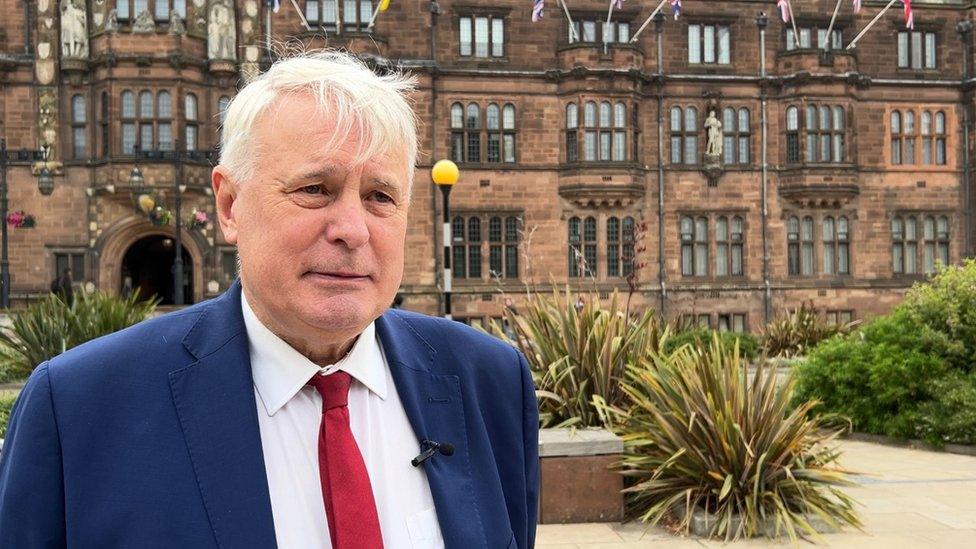Fly-tipping clean-up cuts 'should be dumped'
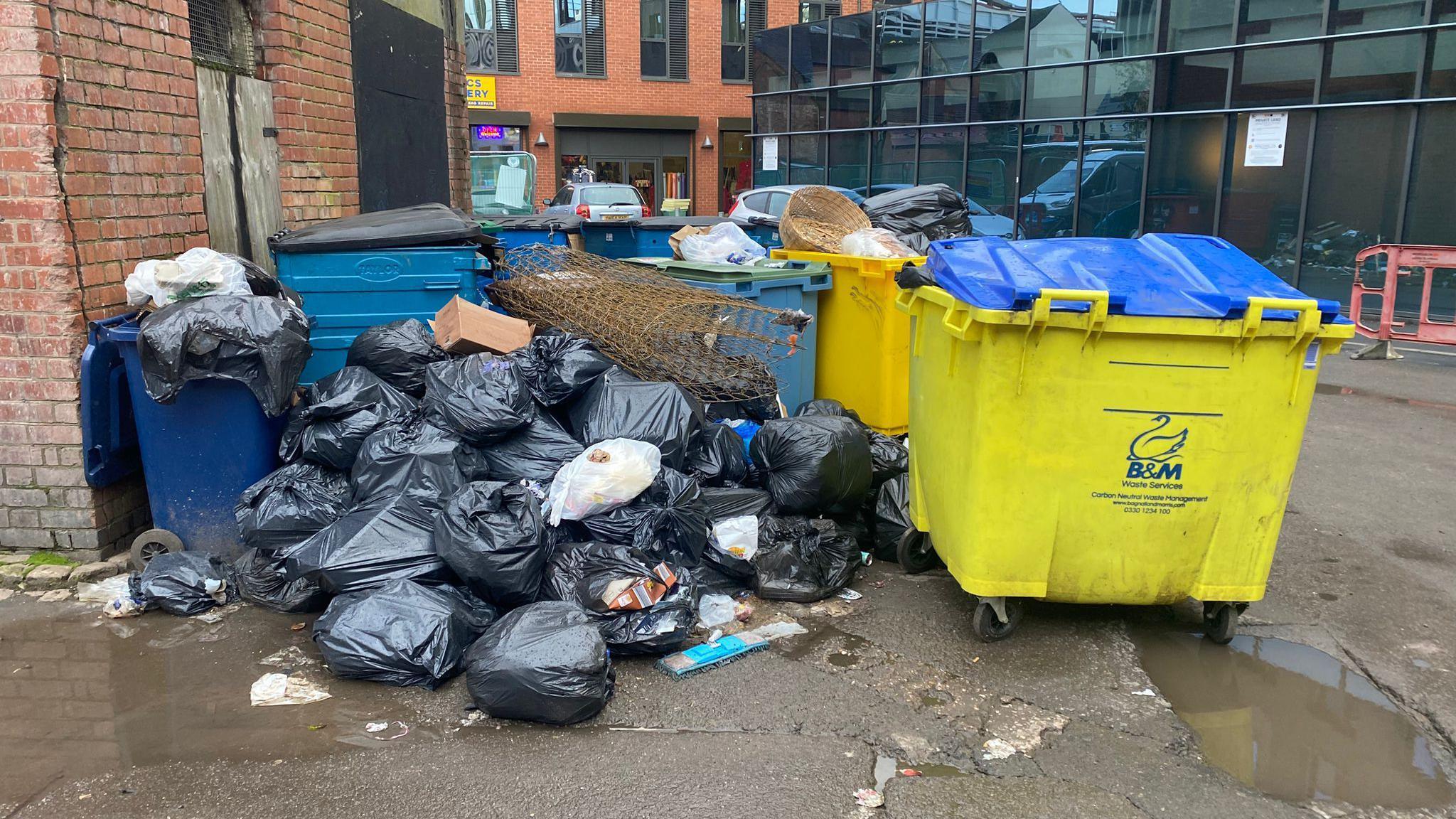
The BBC found fly-tipped waste in the city centre
- Published
Coventry City Council is being urged to drop proposals to cut funding from fly-tipping cleaning in the city.
The Labour-run council is considering reducing its clean-up service to save more than £2m over the next three years.
It is part of a savings plan that includes scaling back events and hiking council tax by 5%, to plug a budget gap of £14m next year.
The council has ruled out declaring itself effectively bankrupt in the next few years, but said more cuts were necessary to balance the books.
The Conservative opposition in Coventry called for the fly-tipping proposal to be dropped.
Gary Ridley, the Tory group leader, said cutting money from fly-tipping cleaning was "something people are going to notice".
"You won’t be able to sweep that under the carpet," he said. "It will trash Coventry’s reputation.
"Clean streets are a basic necessity, not a luxury. When litter and waste starts to pile up, it becomes a health hazard.
"So my message would be, we really need to dump these proposals."
Fly-tipping hotspot
The number of fly-tipping incidents in Coventry has fallen in recent years, down from 6,840 in 2022-23 to 5,883 in 2023-24.
The council is trying to crack down on fly-tippers by hitting them with bigger fines of up to £1,000.
It has installed CCTV cameras at fly-tipping hotspots and is exposing culprits on a wall of shame posted on social media.
But some residents are concerned the council's cost cutting measures could throw away the progress it has made.
Diyar Kadar, 40, lives in Ball Hill, near a notorious fly-tipping hotspot that has been highlighted repeatedly on the council's wall of shame.
He said food and all kinds of rubbish had been dumped, and residents had been complaining to the council for years.
"The council clean, but they don't find a permanent solution," he said.
He added the street had "become a famous place for dumping rubbish" and the council needed to put up more cameras to catch fly-tippers, rather than cutting funding.
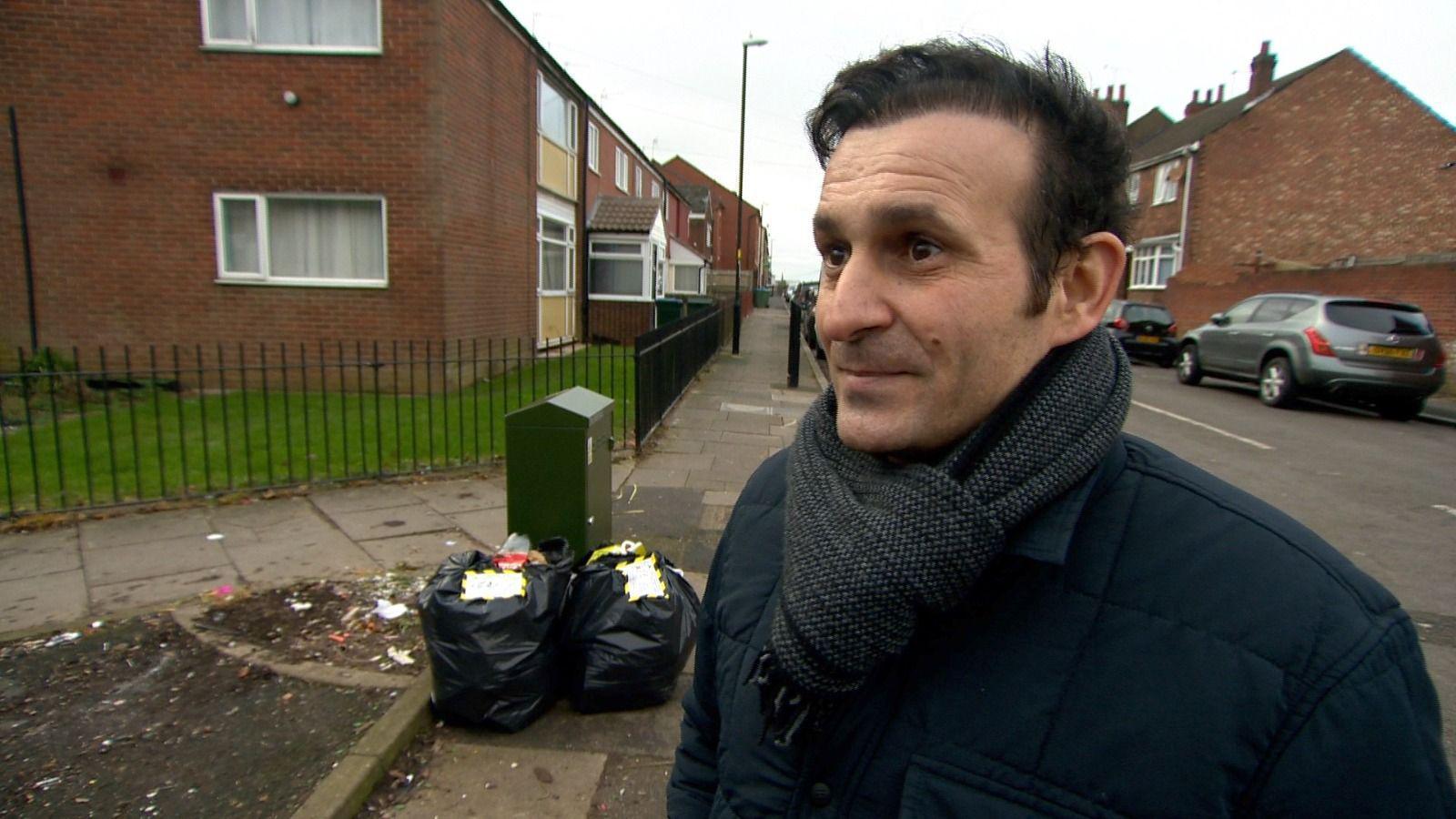
Diyar Kadar said residents had been complaining about fly-tipping for years
In its savings plan, the council said reducing the fly-tipping cleaning service "could lead to an increase in overall fly-tipping".
"Response times for graffiti removal and emergency cleaning would also increase," the proposals say.
When asked if this would mean more fly-tipping in the city centre, council leader George Duggins said the measures were not something the council wanted to do.
"But we have to be honest with people - and say they’re the kind of proposals we have to share with you," he said.
He said the council was not prepared to accept more fly-tipping and had increased the maximum fine from £200 to £1,000 earlier this year.
In a report ahead of its next budget, the council has pencilled in cuts of about £44m over the next three financial years.
No decisions have been made and the council will consult residents on its proposals to cut services by almost £9m in the 2025-26 financial year.
The budget is expected to be finalised in the coming months, before councillors vote on it in February.
Related topics
- Published2 December 2024
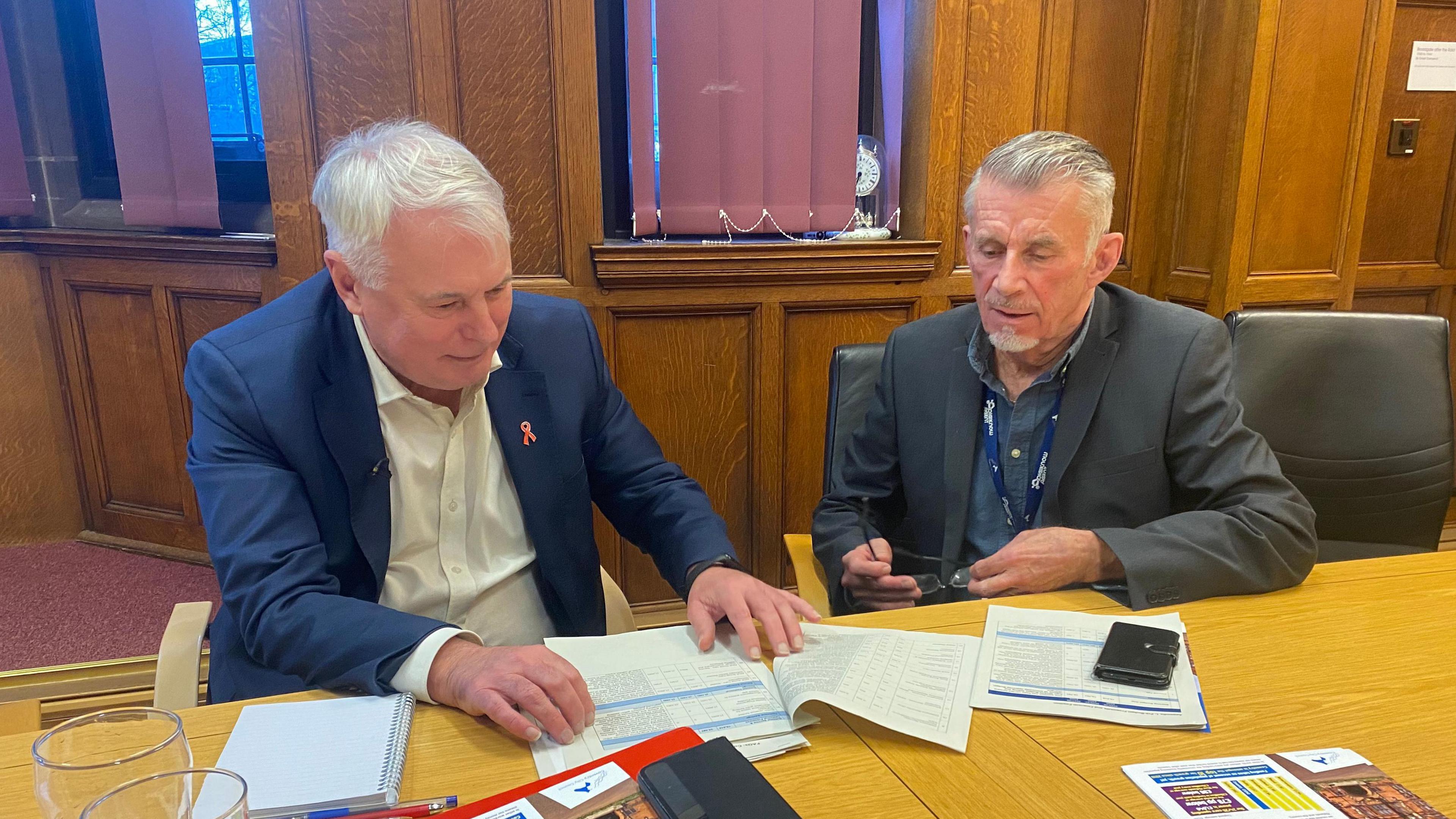
- Published24 October 2024
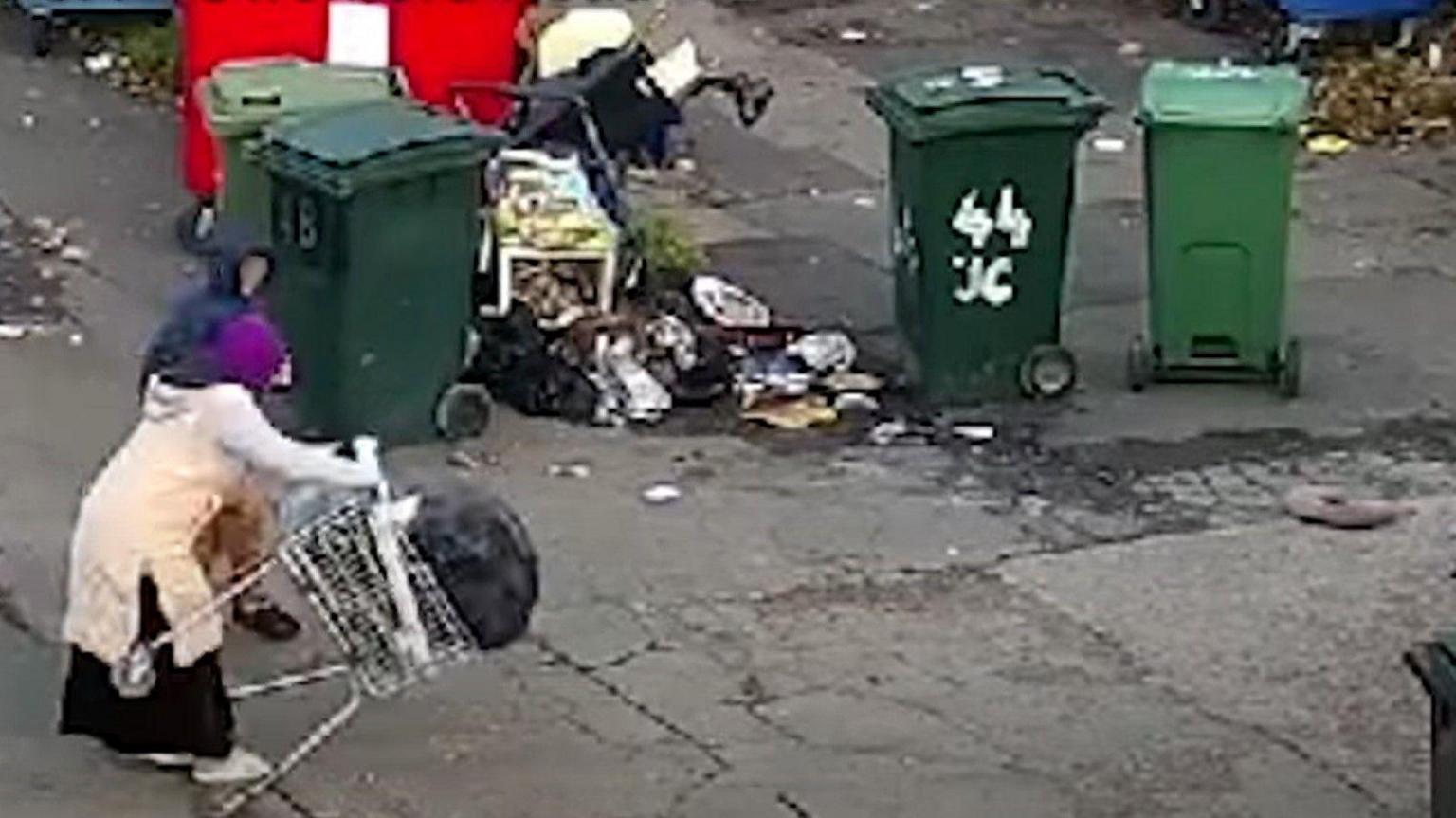
- Published20 February 2024
